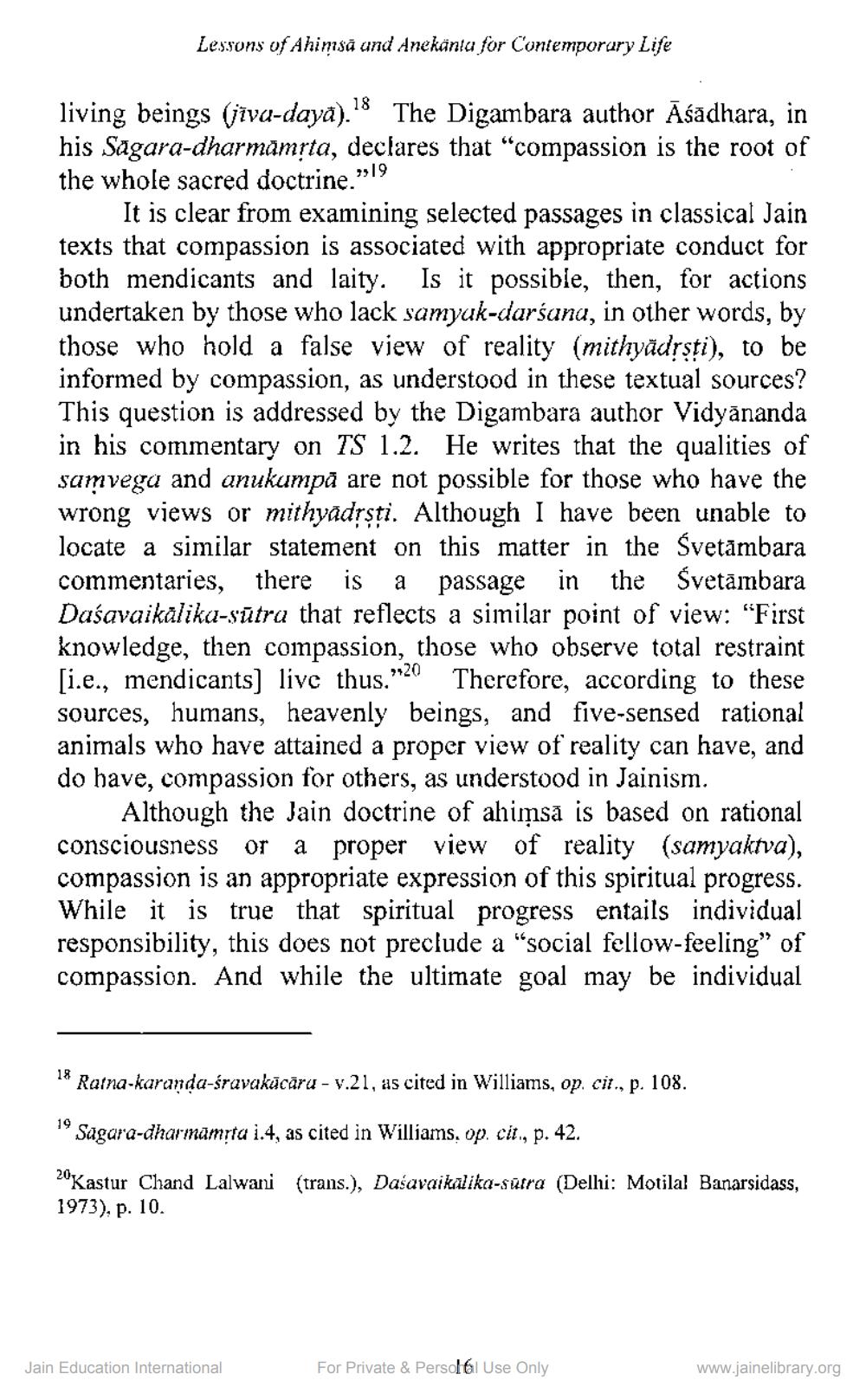Book Title: Views on Ahimsa Compassion and Samyaktva in Jainism Author(s): Kristi L Wiley Publisher: Z_Lessons_of_Ahimsa_and_Anekanta_for_Contemporary_Life_014006.pdf View full book textPage 7
________________ Lessons of Ahimsā und Anekänta for Contemporary Life living beings (jiva-daya).18 The Digambara author Āsādhara, in his Sagara-dharmamrta, declares that "compassion is the root of the whole sacred doctrine." It is clear from examining selected passages in classical Jain texts that compassion is associated with appropriate conduct for both mendicants and laity. Is it possible, then, for actions undertaken by those who lack samyuk-darśana, in other words, by those who hold a false view of reality (mithyadrsti), to be informed by compassion, as understood in these textual sources? This question is addressed by the Digambara author Vidyānanda in his commentary on TS 1.2. He writes that the qualities of samvega and anukumpā are not possible for those who have the wrong views or mithyadrsti. Although I have been unable to locate a similar statement on this matter in the Svetāmbara commentaries, there is a passage in the Svetāmbara Daśavaikalika-sūtra that reflects a similar point of view: "First knowledge, then compassion, those who observe total restraint si.e., mendicants) live thus."*20 Therefore, according to these sources, humans, heavenly beings, and five-sensed rational animals who have attained a proper view of reality can have, and do have, compassion for others, as understood in Jainism. Although the Jain doctrine of ahimsa is based on rational consciousness or a proper view of reality (samyaktva), compassion is an appropriate expression of this spiritual progress. While it is true that spiritual progress entails individual responsibility, this does not preclude a "social fellow-feeling" of compassion. And while the ultimate goal may be individual 1 Raina-karanda-śravakācāru - v.21, as cited in Williams, op. cit., p. 108. 19 Sagara-dharmamita 1.4, as cited in Williams, op. cit., p. 42. 20Kastur Chand Lalwani (trans.), Dasavai kalika-süsra (Delhi: Motilal Banarsidass, 1973), p. 10. Jain Education International For Private & Persolál Use Only www.jainelibrary.orgPage Navigation
1 ... 5 6 7 8
